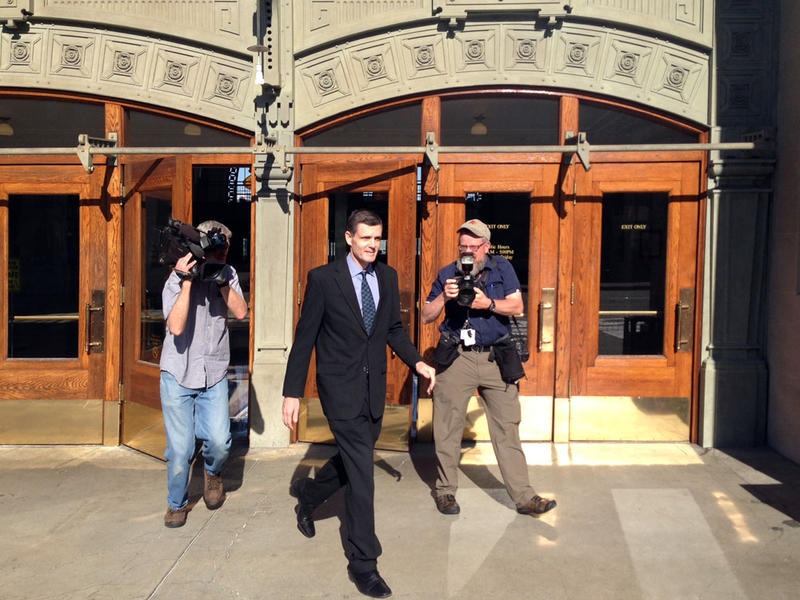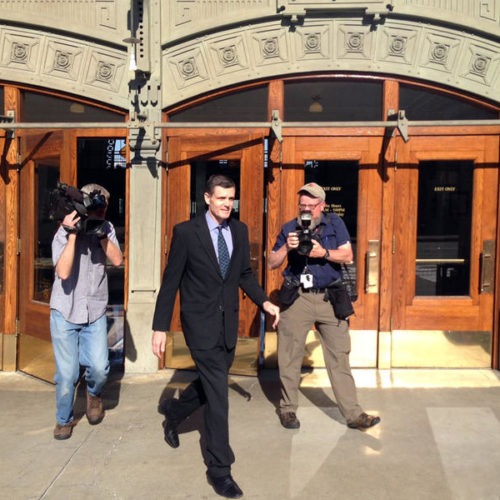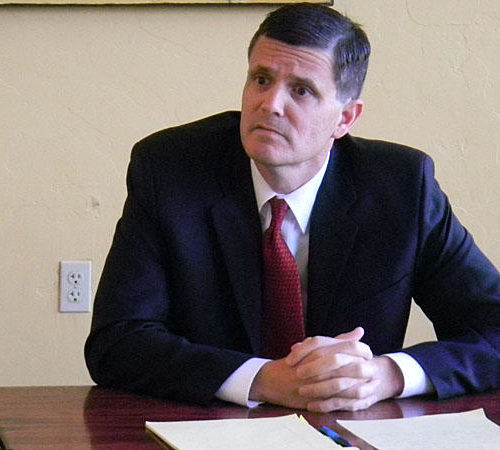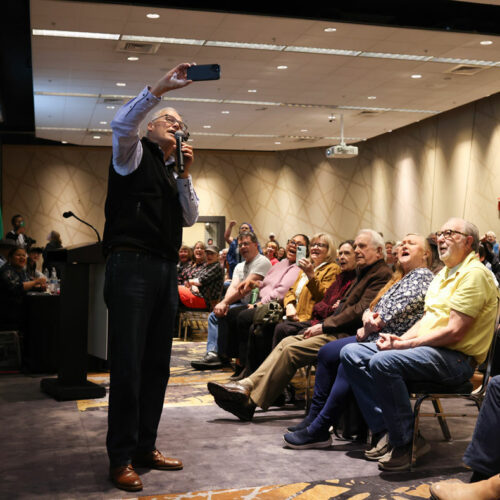
Former Washington State Auditor To Ask U.S. Supreme Court To Review His Convictions
READ ON
Former Washington state Auditor Troy Kelley plans to ask the U.S. Supreme Court to formally review his federal convictions for possession of stolen funds, filing false tax returns and making false statements.
The move comes after the 9th U.S. Circuit Court of Appeals earlier this month denied Kelley’s request for a rehearing of his case by all of the judges on that court. Previously, a three-judge panel rejected Kelley’s appeal seeking to overturn his convictions.
While his request to the Supreme Court is pending, Kelley’s case will once again be stayed and he won’t have to report to prison to begin serving his 366 day sentence.
Kelley’s 2017 convictions, following a retrial, stemmed from his involvement in the real estate services industry during the pre-Great Recession housing bubble, before he was elected State Auditor in 2012.
Specifically, Kelley was accused of pocketing approximately $3 million in fees that prosecutors said should have been refunded to borrowers.
Kelley ran a company, the Post Closing Department, that worked on behalf of escrow and title companies to ensure that banks relinquished their interest in properties once a loan was paid in full.
Kelley and his attorneys insist that, in a case of “prosecutorial overreach,” the U.S. Attorney’s office in Seattle turned a contract dispute into a criminal matter. They contend that Kelley’s conviction “drastically expands the National Stolen Property Act beyond the interpretation consistently applied in other circuits.”
In petitioning for a writ of certiorari, the defense is counting on at least four members of the Supreme Court deciding that Kelley’s case merits the highest court in the land hearing the case.
According to United States Courts website, the Supreme Court only accepts review in about one to two percent of cases each year.
“The Court usually is not under any obligation to hear these cases, and it usually only does so if the case could have national significance, might harmonize conflicting decisions in the federal Circuit courts, and/or could have precedential value,” reads the United States Court web page on Supreme Court procedures.
It’s on that second point that Kelley’s team is hanging its hopes for Supreme Court review.
The defense argues that the money Kelley kept was not stolen because the borrowers had given up ownership of the money when they paid their closing fees. However, the 9th Circuit rejected that argument.
“[T]he United States provided sufficient evidence that the borrowers owned the fees,” the judges wrote in their six page ruling in July. “The evidence is sufficient to convict.”
In seeking the Supreme Court’s attention to the case, Kelley’s attorneys cite two recent cases where the high court ultimately sided with convicted public officials. One is a May decision that overturned the convictions of two people involved in “Bridgegate,” the 2013 scandal involving the closure of the George Washington Bridge by members of then-Gov. Chris Christie’s administration.
In the second case, the Supreme Court in 2016 overturned the conviction of former Virginia Gov. Bob McDonnell who had been found guilty of corruption involving gifts.
While Kelley was indicted during his tenure as state auditor, the charges against him did not relate to his official duties as an elected official.
Previously, federal prosecutors have said Kelley has exhibited a “stunning lack of acceptance of responsibility” and said that accountability in his case was heightened because of his position as an attorney and former elected official.
After the 9th Circuit denied his appeal in July, U.S. Attorney Brian Moran in Seattle said, “The time has come for Troy Kelley to accept his punishment and report to custody and conclude this lengthy legal odyssey.”
Related Stories:

Former Washington Auditor Troy Kelley Reports To Prison After Last-Minute Delay Effort
After years of waging appeals, and a last minute petition for a 90 day delay, former Washington state Auditor Troy Kelley has entered a federal prison camp in California to serve his sentence for conviction of possession of stolen property and other crimes.

Former Washington State Auditor Faces Prison Time After U.S. Supreme Court Denies Review
Former Washington state Auditor Troy Kelley has exhausted his appeals and now faces the prospect of having to report to a federal prison to serve a 366-day prison sentence after the U.S. Supreme Court denied a petition for review of his case.

Court Upholds Conviction Of Former Washington State Auditor Troy Kelley, Further Appeals Possible
The 9th U.S. Circuit Court of Appeals on Wednesday rejected an appeal by former Washington state Auditor Troy Kelley who sought to have his 2017 convictions for possession of stolen property, filing false tax returns and making false statements overturned.















